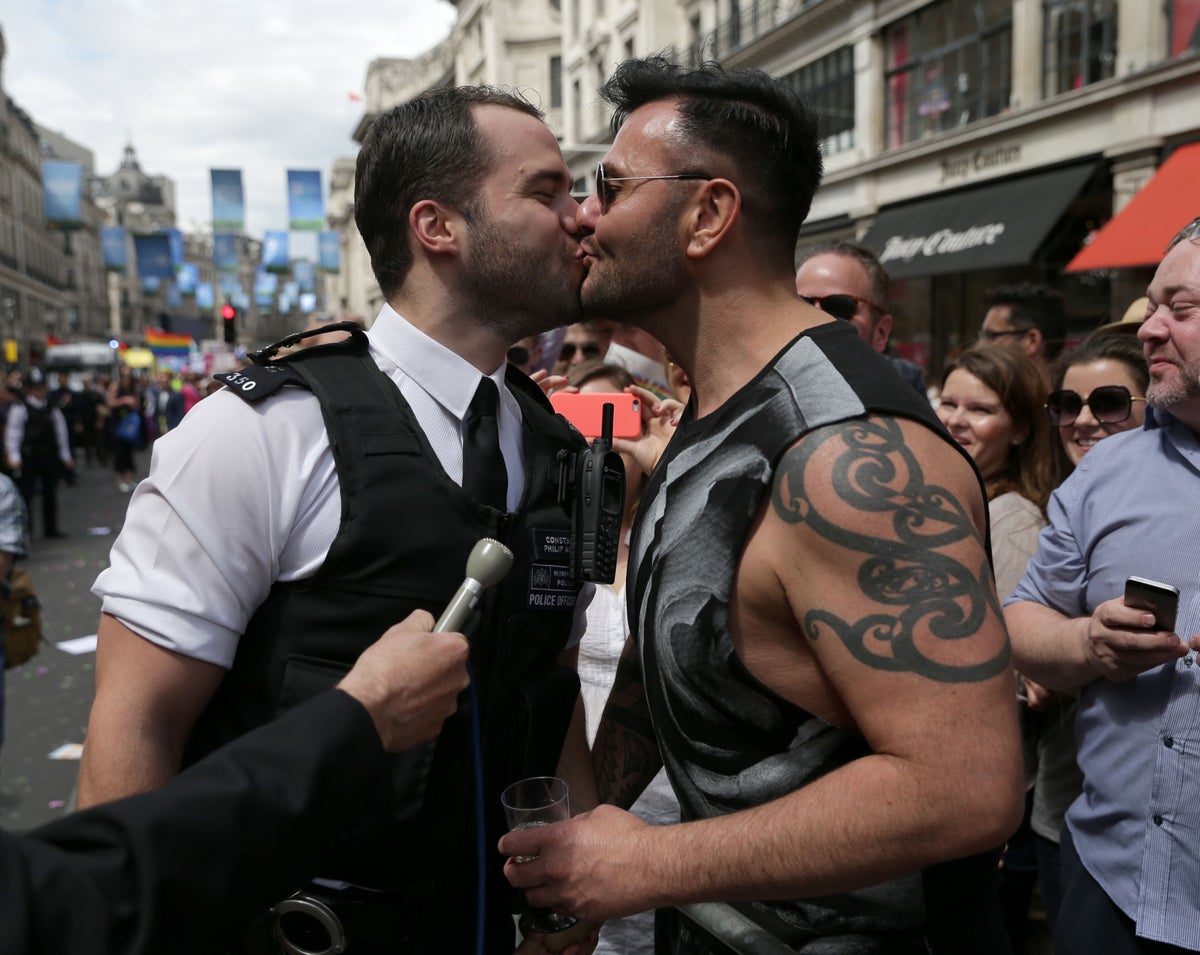
Uniformed officers are not welcome to march in the parade at this year's Pride festival in London, organisers have said in response to what they said was the Metropolitan Police's "homophobic" handling of its investigation into the murder of young gay men by Grindr killer Stephen Port.
A number of groups, including the Gay Liberation Front - which organised the first march in 1972 - have signed an open letter saying it is "time to end the practice of police participation in Pride each year."
"Within the last year, the Metropolitan Police has officially and repeatedly denied that it has a problem with institutional homophobia," the letter says. "We all know it does, however, not least the failure of the force to properly investigate serial killer Stephen Port – inaction that led to the deaths of young gay men."
The intervention comes weeks after the policing watchdog announced that it would investigate the Met's handling of Port's case.
Port murdered the four men during a 16-month period between 2014 and 2015. He met them on the Grinder dating app before luring them to his one-bed flat in Barking before, where he gave them fatal doses of the date-rape drug GHB and then dumped their bodies nearby.
He was initially arrested days after he killed his first victim, but was not charged with murder until after he struck for the fourth time. Police said they were inexperienced in dealing with such cases and were struggling with a large workload at the time of the deaths.
Port, now 46, was convicted of all four murders in 2016, as well as eight sexual assaults against other victims who survived, and he is serving a whole-life sentence in prison.
Inquests into the murders of Anthony Walgate, 23, a fashion student, Gabriel Kovari, 22, from Slovakia, Daniel Whitworth, 21, a chef, and Jack Taylor, 25, took place at the end of last year. In December the inquest jury concluded that fundamental failings by the Met "probably" contributed to three of the four deaths.
Detectives looking into the murders failed to estabblish links between - despite a number of similarities between them. This included the fact that three of the men were found in a churchyard in Barking, east London near to where Port lives.
The Met denies that those failings were due to "institutional homophobia" within the force.
Peter Tatchell, the human rights campaigner, said the Port case - as well as other revelations of homophobia, racism and misogyny in the force - meant Pride must take a stand on police officers’ participation in the parade.
“While there are many good officers, and they are welcome to march in civilian clothes, Pride needs to challenge the police as an institution, otherwise they will never reform,” he said.
Pride in London said in a statement: “We work hard to strike a balance between the very real and legitimate concerns from members of our community, and being as welcoming as we can. We agree that the police uniform undermines that balance, and as such we are aligned that it should not feature in our parade."
A spokesperson for the National Police Chiefs’ Council said: “Taking part in Pride is important for LGBTQ+ colleagues within policing. It allows LGBTQ+ people to see that they are represented in the police service and it is an excellent public engagement opportunity where we can promote safety messages, understand community concerns and recruit from diverse communities.”
The Independent has contacted the Met for comment.







